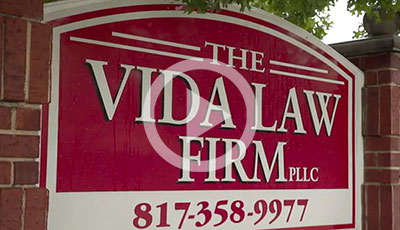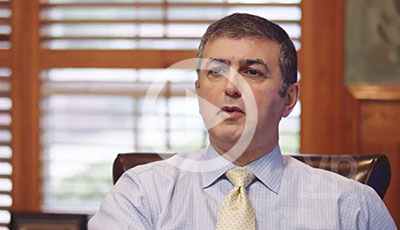DFW GENERAL BANKRUPTCY QUESTIONS
The information provided throughout this web site is general in nature and is not intended to be legal advice, nor is it intended to be a complete discussion of all the issues related to the area of bankruptcy. Every individual or business situation is factually different and you should seek independent legal advice regarding your specific situation. There are a lot of misconceptions about bankruptcy which forces people to not even consider it as a solution when they really should. The bankruptcy process is not meant to be confrontational, and is certainly not meant to punish you or to take away your home, the contents of your home or your vehicles. In the vast majority of cases, you don’t have to give-up or surrender any of your assets or possessions. The following should answer many basic questions you may have.
- What does Board Certified mean?
- What is bankruptcy?
- Will bankruptcy Affect My Job?
- Can I Keep My House, Car and Other Assets?
- Does My Spouse Have to File?
- What’s the impact on Ex-spouses?
- Can I Go to Jail?
- What Happens to My Credit?
- Can I Ever Get New Credit?
- Credit Card Debt
- Do I have To Go to Court?
- Student Loans in Bankruptcy
- Which Debts Can I Include?
What does Board Certified mean?
At The Vida Law Firm, LLPC, both Richard Venable and Behrooz Vida, are board certified consumer bankruptcy specialists. In addition, Behrooz Vida, is board certified in business bankruptcy. For an attorney to become certified as a specialist by the Texas Board of Legal Specialization, the attorney must have:
- Been licensed to practice law for at least 5 years.
- Practiced bankruptcy law for at least 3 years.
- Devoted a minimum of 30% of their law practice to bankruptcy law.
- Handled a wide variety of specific bankruptcy law matters to demonstrate experience and involvement.
- Regularly attend bankruptcy law continuing legal education seminars to keep their legal training up to date.
- Been evaluated by fellow lawyers and judges.
- Passed a day-long written examination.
Of the approximately 61,000 licensed attorneys in Texas, only 158 are board certified in consumer bankruptcy law.
What is bankruptcy?
Bankruptcy is a field of law devoted to assisting people and businesses deal with their creditors. Immediately upon filing a bankruptcy case, creditors are stopped or enjoined from taking any further steps toward collecting payments. This injunction, or the automatic stay is one of the primary benefits of filing a bankruptcy. The bankruptcy judge may impose sanctions or penalties against creditors who attempt collection after the bankruptcy case has been filed. Most creditors are aware of this and immediately stop collection when they are notified that you have filed a bankruptcy.
Generally, there are three types of bankruptcy that may be available to you, and the laws pertaining to the types of bankruptcy are contained in various chapters of the United States Bankruptcy Code. The most common types of bankruptcy are Chapter 7, Chapter 11, and Chapter 13.
It is important to know what bankruptcy is NOT. It is not a procedure for avoiding debts you simply don’t want to pay, but can otherwise afford to pay. It is not a procedure that allows you to keep your house and cars without paying for them.
Will bankruptcy Affect My Job?
The Bankruptcy Code specifically prohibits employers from discriminating against employees who file bankruptcy. This prohibition applies to both private and governmental employers.
An employer is notified of your bankruptcy only if you owe money to your employer.
Can I Keep My House, Car and Other Assets?
The property which you can keep out of the reach of most of your creditors are known as exempt property. As a general rule you may choose between two lists of exempt property. One list is provided for by the United States Bankruptcy Code, and the other is provided by Texas Laws and other Federal Laws. Both lists are designed to allow you to keep your house, cars, and household goods.
There are certain advantages and disadvantages to each list, and your attorney will advise you as to which list is best for you. It is extremely rare that you have to give up any assets when filing a bankruptcy. If you exceed the exemption limits, your attorney will advise you of your options.
Understanding what exempt property is, and what you can keep is certainly important, but somewhat confusing to the lay person. You should rely on your attorney to fully explain this area of bankruptcy law.
Remember, if you still owe the creditors having liens on your home and cars, you will have to pay for them if you want to keep them despite these items being exempt assets.
Does My Spouse Have to File?
Your spouse does not have to file too. However, as a general rule in Texas, debts incurred during a marriage are community debts, meaning the creditor can look to the community assets of either spouse for payment. If you file a chapter 7 and your spouse does not, the debts will be discharged as to you. The creditors cannot look to you for payment. However, the creditors may look to your spouse for payment. This is especially true if the spouse co-signed the debt.
What’s the impact on ex-spouses?
First of all, your filing a bankruptcy will not be listed on an ex-spouse’s credit report. Debts that you incurred after the divorce that are not co-signed or guaranteed by your ex-spouse will be discharged and the ex-spouse will not be affected.
If you incur debts during a marriage, get a divorce and then file a bankruptcy, you may be discharged from the debts and the creditor may no longer look to you for payment. However, the creditor may look to your ex-spouse for payment and your ex-spouse may have remedies against you despite your bankruptcy.
This area of the bankruptcy law is very complicated, we strongly recommend that you seek advice tailored to the facts of your situation.
Can I Go to Jail?
There is no debtors’ prison in the United States, and your inability to pay your debts is simply not a basis for criminal prosecution.
What Happens to My Credit?
When you file a bankruptcy, a notation is made on your credit report. The report states that your debts were “discharged in bankruptcy”. In a sense, this is part of your fresh start in that “slow pay/no pay” entries will no longer be re-entered on your report.
The bankruptcy notation remains on your credit report for 10 years if you fill a chapter 7 or 11 and 7 years if your file a chapter 13. A lot of people think that this means you cannot get credit for 7 or 10 years. That is simply not the case. The notation is on your report, but it is not a prohibition against issuing you credit.
If you continue to make your house and car payments, you will continue to have good credit with those creditors.
Can I Ever Get New Credit?
Filing a bankruptcy is a negative entry on your credit report. Whether or not you can get new credit following a bankruptcy depends on several factors. The main factor will be your level of income. The higher your income, the more likely you are to obtain credit. Also important is the length of time since the filing of your bankruptcy. As a general rule it is difficult to get new credit within two years of filing a bankruptcy. Thereafter, the degree of difficulty drops off significantly. Also, you may maintain good credit standing with those creditors to whom you continue to make your required payments, such as your car and house creditors and those creditors to whom you did not owe any money on the date of filing your bankruptcy.
Credit Card Debt
Do you know how long it takes to pay off $1,000.00 in credit card debt if you just pay the minimum? How about $5,000.00 or $10,000.00? According to a bank study, if the credit card interest is only 17%, it will take you 12 years to pay off $1,000.00! It will take you more than 24 years to pay off $5,000.00 and 29 years to pay off $10,000.00! That’s assuming you’re not late on any payments and your annual percentage rate is 17%.
If your credit card debt is so large that you are only able to make the minimum payments, and are unable to properly maintain your household, bankruptcy may be the answer to your problem.
You are required to list all of your existing credit card debts in your bankruptcy, but you do not have to list the credit cards that have no balances.
No matter which chapter you file, you should not make any payments exceeding $600.00 to any credit card company within 90 days of your bankruptcy without discussing this with your attorney.
Do I have to Go to Court?
As a general rule, no.
Whether you file a Chapter 7, 11 or 13, the meeting of creditors will not be held at the courthouse or before a judge.
It is relatively rare that a debtor actually has to go to court and testify in a bankruptcy case.
Student Loans in Bankruptcy
Student loans are not discharged in a bankruptcy unless repayment would cause “undue hardship” on you and your dependents.
Rarely, will a bankruptcy court rule that repayment of a student loan will cause “undue hardship.”
We recommend that you discuss the facts of your case with your attorney to determine whether you qualify to discharge your student loan.
Can I List Only Those Debts that I Want to Discharge?
No. The bankruptcy code requires you to disclose and list all of the debts that you have on the date you file your case.


